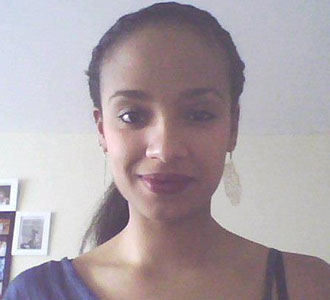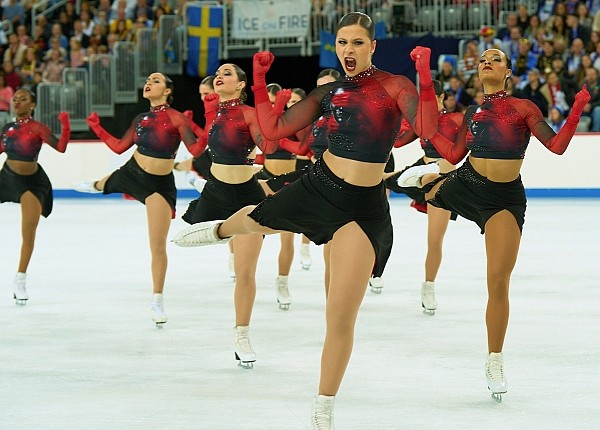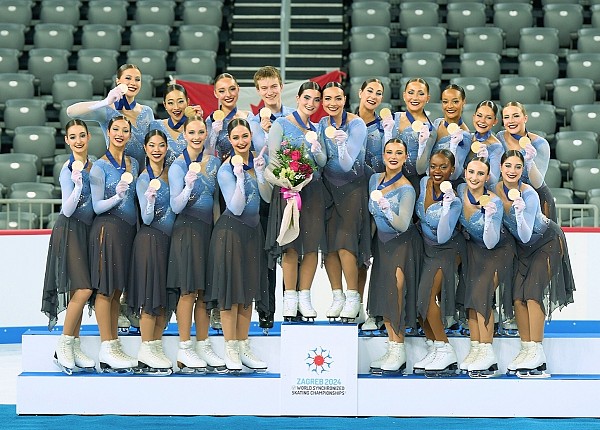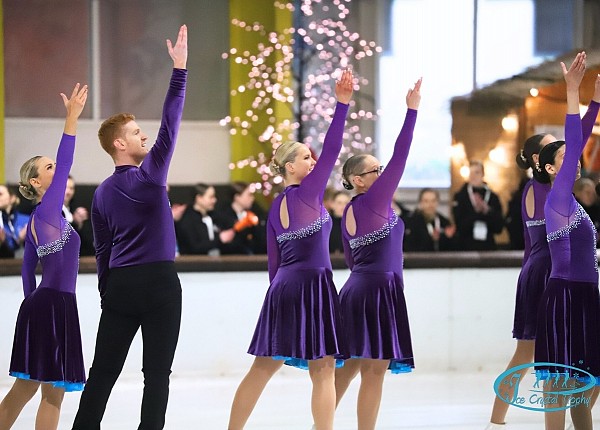Magazine
The beautiful story of this coach who fell in love with synchro

Kilian and his Novice team
Kilian Madeja answered our questions while sitting in the train on his way to his office. He works and lives in the south of Germany in the city of Stuttgart (where the companies Mercedes and Porsche come from). Let's learn more about this coach!
One day around at this pretty small single skating club, where I had been skating since I was a kid, the only coach at that time there left.
At that time, I started to become a coach myself, did schooling, and took an exam. At that time, I did not know about synchronized skating.
I wanted to help the kids to be able to continue skating and training at my home club and to support them as well as I could. I continued this until I finished my studies of civil engineering and moved to Stuttgart.
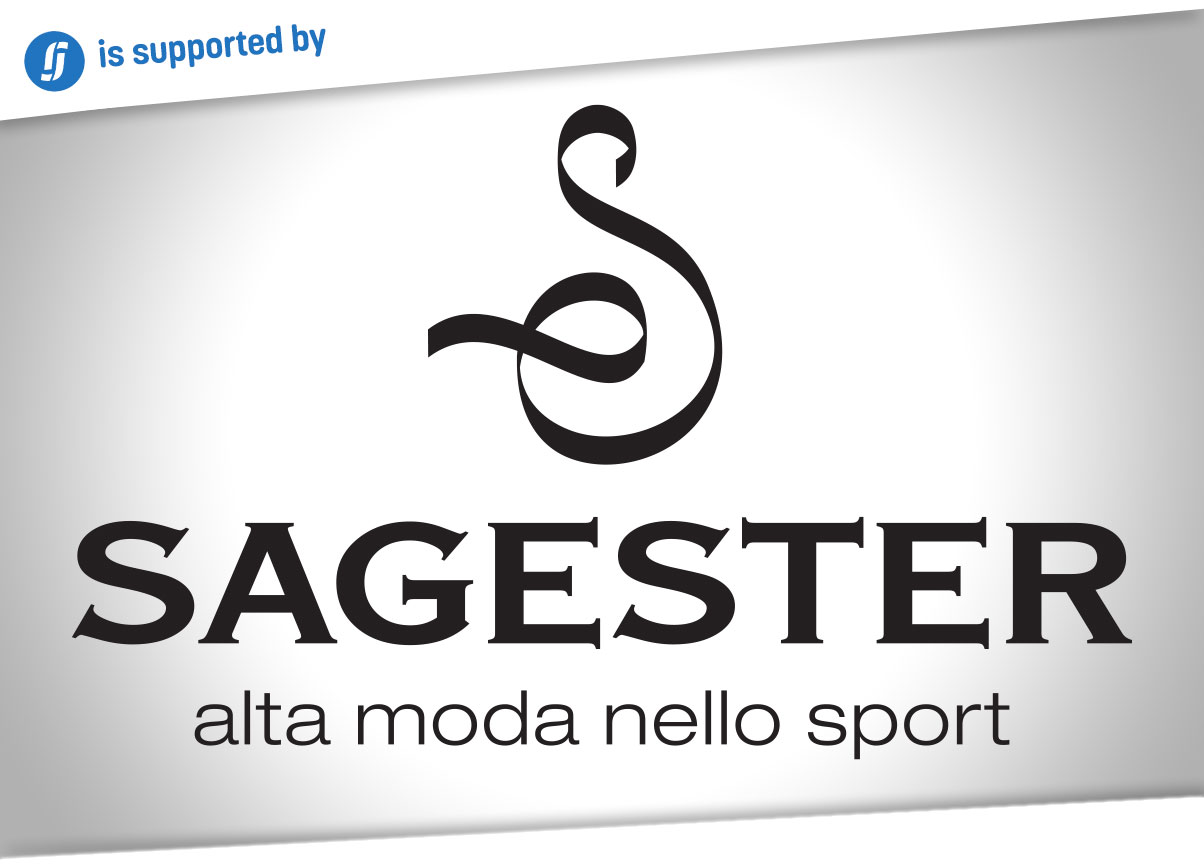
After my studies in civil engineering, I moved to Stuttgart for a job at a well-known engineering office. Of course, I wanted to be back on the ice somehow. I had been competing at Adult competitions. (GayGames 2010 in Cologne where it was a real highlight for me.)
So at the municipal ice rink of Stuttgart, I discovered that there is a synchronized skating team training. Since I heard about synchronized skating before, this caught my interest. It would be a new challenge and as a skater and as a coach a great opportunity to learn how to learn new things, to improve and enlarge one's knowledge.
Four years ago, I started helping out at our Novice Team and since then I have taken over the team more and more as a coach and somehow as a team manager, too.
I have not stopped skating and I am still part of United Angels Senior, situated in Stuttgart.

I always try to reflect on myself to become a better coach. This not only in the matter of technical know-how but also in creative, motivational ways, parenting, team building, conflict prevention and conflict resolution, ways of giving corrections, etc.
I even took the test to become a technical specialist at the national level at the Frankfurt seminar. Unfortunately, I did not find the time to judge afterward.
Besides all that I love to work in a team of coaches, where you can discuss and learn from each other.
Therefore I would also love to visit other teams to share my knowledge or to learn from other coaches.
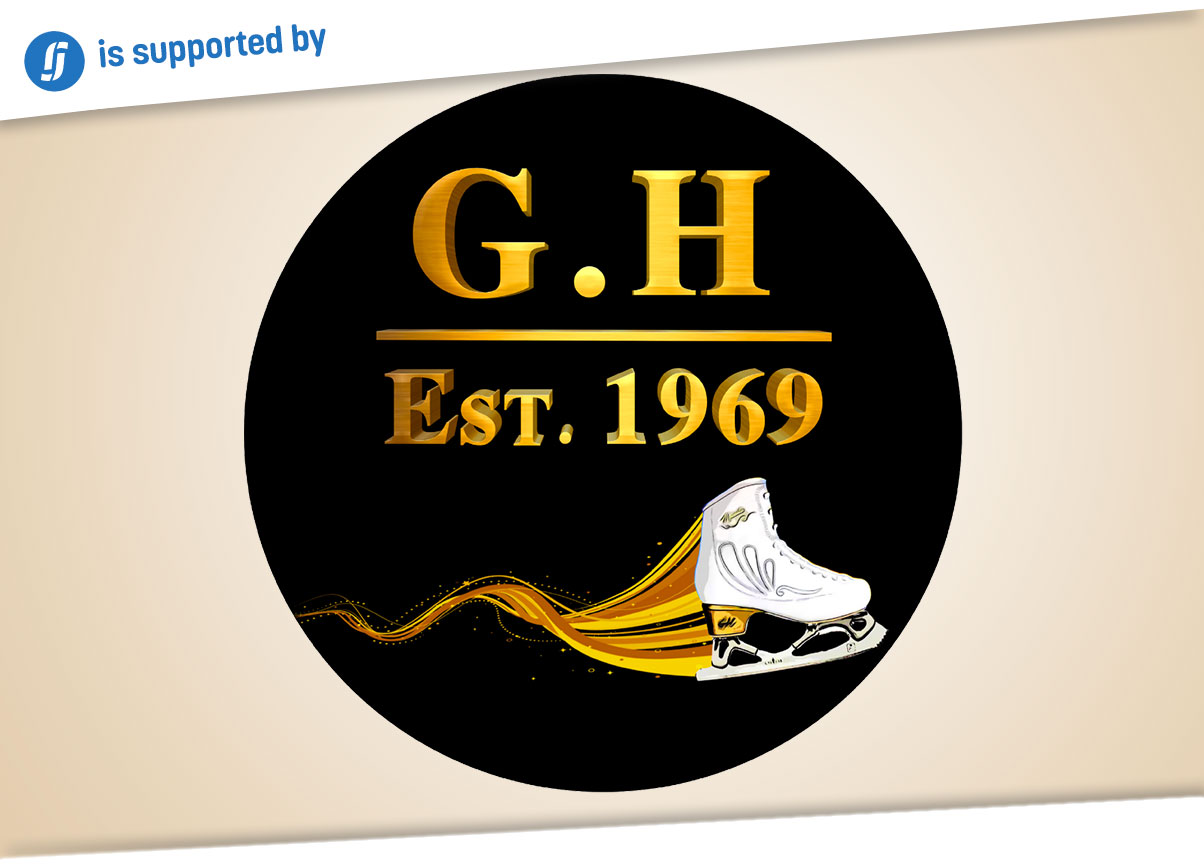
There are quite a few non-ISU teams in Germany. When it comes to the ISU categories we can be happy when there are five or six teams.
I think the main issues we face in my opinion are missing ice times, closing rinks, and still the lack of enthusiasm or even the knowledge about synchro among skaters and coaches of other disciplines, parents, skating clubs, or people in general.
One of my best synchro memory is when my novice team, which had just learned its program and still had all sorts of problems with it in training, unexpectedly had an excellent performance at an exhibition of another skating club. They also had so much fun and a great team spirit. Since I was not expecting that at all at that time of the season, I felt overwhelmed.

I love the pivoting block (once it works), where everyone can feel one another and the team's energy.
Definitely Nexxice Short at the 2015 Worlds on-road hammers. This synchronicity and precision in comparatively modest costumes have even impressed friends who are otherwise not so impressed by the sport.
We always do a mental run-through holding hands all together the night before competition. And right before we leave for the warm up we have our "banana meeting", so everyone has enough energy.
For most of the season, the novice team I'm coaching on Sunday morning and the senior team I skate on Sunday evening practices. So it is just exhausting when you go to the ice rink twice a day, and in the meantime, you hardly have more time than for lunch and a nap.
It gets difficult on Thursdays when we have to share the ice with both teams. I usually come straight from work, and my skaters have had their school day behind them. The ability to concentrate often is not so great, and it can be difficult as a coach to move your team forward. After an hour, the novice team leaves, and like in a second, I become an athlete. At that time, I have missed the warm-up and skating skill part of the training, and it often goes straight into the program.
My warm-up often consists of a full program run through. Sometimes I find it challenging, but most of the time, it works pretty fine. As the novice skaters are the future of the older team, everyone gives support.

Being able to train almost like normal is just great and having fun together on the ice and as a team is one of the best things for everyone's mind, I guess.
The novice team most likely will not compete this season. We will be trying to recruit new skaters and maybe start some juvenile training.
The senior team is still keen to take part in competitions, but we will have to see how things come out.
In any case and with great and loving Canadian help, we just built a really great and challenging new free program.
As coaches, we are role models, and I always try to support all athletes in the same positive way. During training, too.
I keep talking about positive mutual interaction, which is always important for the team spirit.
I ask everyone to come to me in case of problems. If there are any problems among athletes or parents, we actively seek discussion because we are only strong together.

As an athlete, you are of course always someone who attracts attention. So I always have in mind that I have to be even better than the rest of the team. Whether I will succeed is another question, but I keep working on it.
As a trainer, I do not think there are any big differences. However, I always look for a female help to have support at competitions, because I am not of much help when it comes to hair and make-up.
Luckily, as a trainer or athlete, I have not had to face anything like that yet. Of course, you have to counter racism and say something if you notice anything actively.
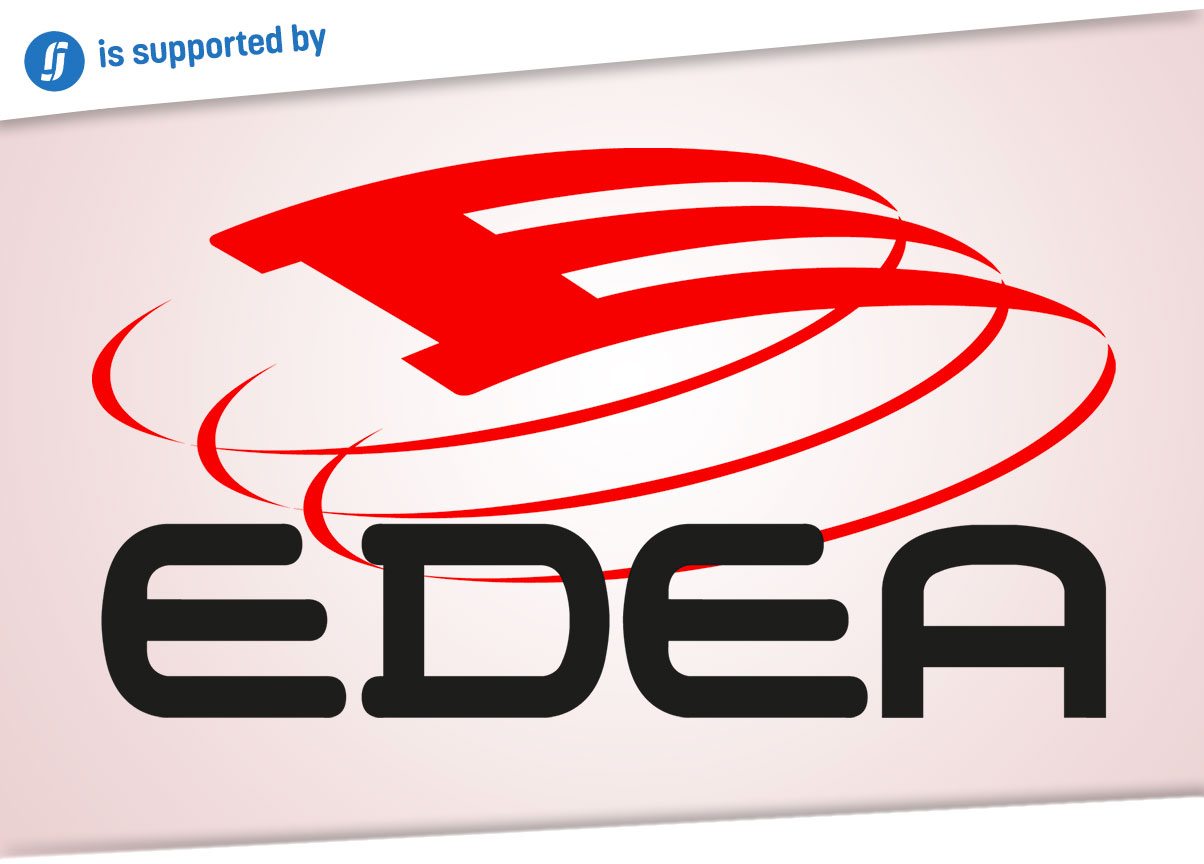
I would get someone to support me and talk to the people concerned. If that does not work, you would have to think about expelling someone from the team, training or banning someone from the rink, and, in the worst case, about filing a criminal complaint.
I think you have to actively set an example and keep talking about what our values are. Diversity should not be seen anywhere as something negative but as an enrichment.

It taught me all kinds of teamwork skills, like self-confidence, the ability to deal with conflicts, how to criticize, the willingness to compromise, etc.
All this is just so precious for one's life and career, and there are so many parallels in a working environment.
There are many things to say, but I think you can sum it up to "Believe in yourself."

I want to strive for better training for coaches and more communication with one another. And I have not given up becoming a technical specialist.
Follow Killian’s day on Nov 1, as he takes over OneTeamMVMT's Instagram story.

